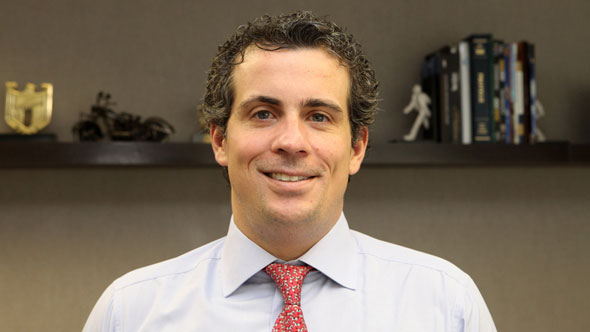Security in Brazil: Cash in Transit Security in Brazil
Mario Baptista, CEO of Protege
Protege is a family-owned business present on Brazilian market for more than 40 years. Protege offers cash in transit (CIT) services and thus keeps the security in place.
Interview with Mario Baptista, CEO of Protege

Tell us about Protege; what is your strategy for the upcoming year, and how do you differentiate yourselves from other companies in the security sector?
Protege is a privately-owned company, a family business. We are completing forty years of existence this year. We are based mainly in Brazil. Around 80% of our revenues are from CIT (cash in transit) services. Our services can be described as everything pertaining to cash logistics. The banks today deal mostly with statistics, numbers, and IT systems; they only see virtual money. The physical money is with us, the CIT companies. There are several companies like us around the world, very big companies such as G4S, Brinks, and many others.
The difference between Protege and these companies in Brazil, is that we have the opportunity to be agile and fulfill some customer needs these companies are missing, due to their global size. For instance, clients value the presence of the owner in the business, it means that not everything can be so mechanic, as in huge multi-national companie. When you decide to move to the other league of business strategies, to grow to other countries or economies, you start to become vulnerable and we better fulfill this blank space that they have left behind as a huge corporation.
We are dealing with the most valuable part of any company: money. One of the huge barriers we thought we would face was, as a Brazilian company, how would these large corporations look at doing business with us? Providing complete transparency and solid financial fundamentals, we have been able to show our clients that they are secure.
How do you see yourselves in five years time? Would you like to go international?
There is no question of “if” we go global; it is more of a “when” question. And that is a tough question to answer because there is not one particular move that this depends on. We are at a point where everyone wants to come here right now, so why go outside? We had some invitations to establish operations in India, but the problem with such countries like India – not only from an economic perspective but from a legal point of view – are the laws surrounding the security industry; these laws are really uptight. Most of these countries have hard restrictions which make it difficult to invest. For instance, if you want to invest in Angola, you need to have a government partner. This is not something that we are used to deal with. It might be a thing that we have to consider, for growth, but it’s not our priority right now. Expanding in South America is on our agenda for the next five years, in countries such as Mexico and Chile, both of which are growing at a similar rate as Brazil. It doesn’t make sense for us in the next five years to go to the U.S. or Europe where the growth is already stabilized, even decreasing.
We are dealing with the most valuable part of any company: money.
The two main strategies for growth of companies in our (Brazilian) kind of economy are acquisitions or partnerships with banks. Banks have the power to bring in a company to develop a healthy relationship with the market, to develop some competition in the market. This is an easier way to grow and set foot outside Brazil.
Given the security situation in Brazil, how necessary is it for companies to use your services?
From a transportation point of view, it’s not really a security issue with an immediate impact on the population itself, but a professional service that we provide to banks. As for armed guards, Brazil is really misunderstood by the world. Our image is mainly a result of things that we do here but it doesn’t have to do with security itself. The key issue in Brazil that impacts security is education. This is the basis of any economy. We have a huge population that is just starting to get to know the basics of education, mainly reading and writing. There is, of course, crime in Brazil, but it is very localized. If you know your way around Brazil, you know that it is not that much of a problem. The U.S. is responsible for 40% of the world’s security revenue! An image of lack of security is not a security issue.
What would be your advice to a new company coming here and not knowing the market?
A lot of companies are worried about Brazil from a security point of view. I can understand where they’re coming from, as our image outside is one of crime. But when they get to know Brazil, they see that there’s not much to worry about. From a company point of view, I don’t see crime as an issue. I think that if the economic situation is positive, the security issues can be overcome. We have really huge multi-national companies that bring their executives here, and they give them all the necessary protections like private security and insurance. They have been here for a long time, like 50 years, and they are not leaving Brazil. They are going to invest even more in Brazil.